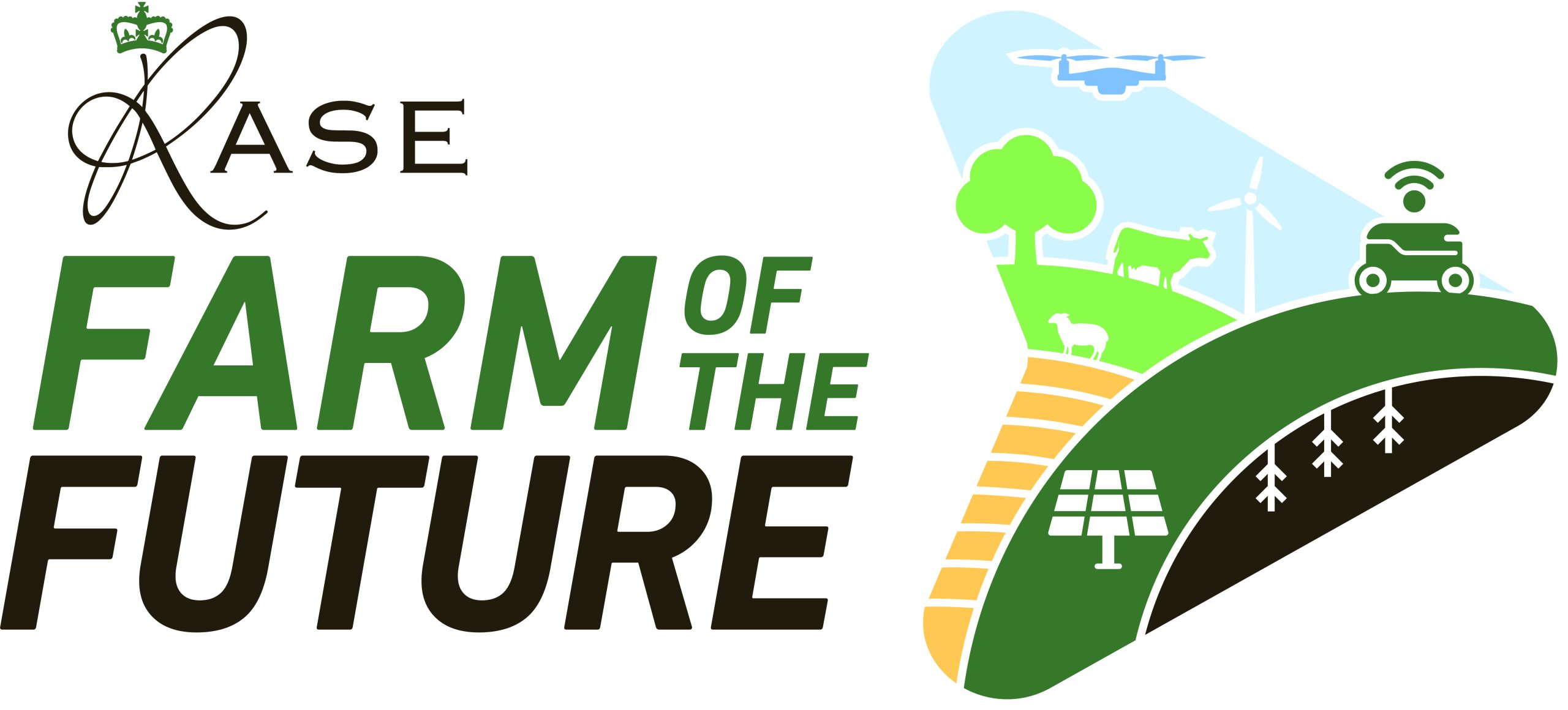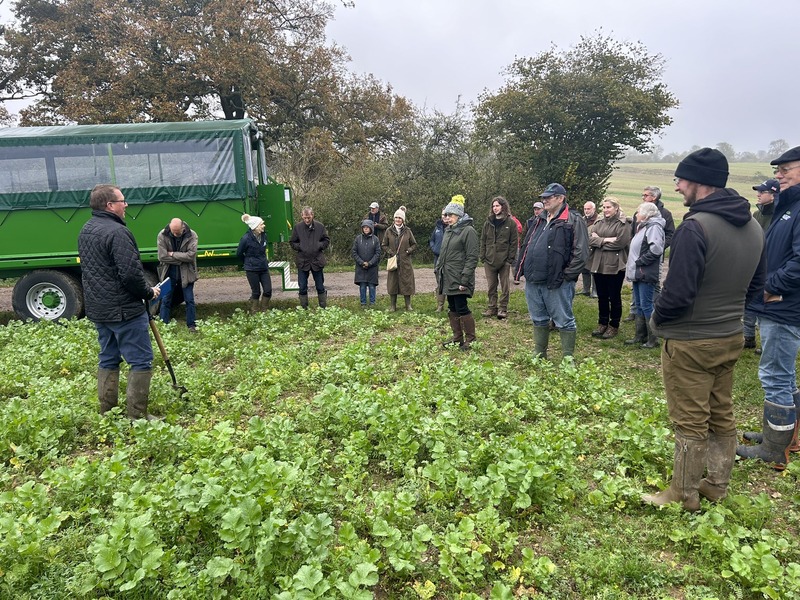The Farm of the Future study tour held in Hampshire on 6th and 7th November 2024 brought together 22 attendees from 19 diverse farming businesses involved in both arable and livestock enterprises. The two-day event offered a unique platform for farmers to connect with peers, exchange ideas, and gain inspiration for implementing regenerative farming practices.
Participants visited leading farms in the region, witnessing firsthand the innovative practices that are shaping sustainable and resilient farming systems. Through expert-led discussions and demonstrations, attendees explored practical ways to adapt to challenges in modern agriculture while prioritising environmental and economic sustainability.
Leckford Estate – The Waitrose & Partners Farm
During our visit to Leckford Estate, part of the Waitrose & Partners farm, attendees were introduced to a range of farming practices that align with the estate’s commitment to regenerative agriculture. The estate’s efforts focus on improving soil health, enhancing biodiversity, and supporting the Waitrose Farming for Nature programme, which aims to balance productivity with environmental stewardship.
One of the key highlights of the visit was the estate’s biomethane plant, an example of circular economy principles in action. The plant captures methane emissions and converts them into clean fuel, which powers their feeder wagon tractor. This initiative helps reduce emissions from their 480-head beef cattle enterprise, showcasing how sustainable technology can integrate with traditional farming practices.
The estate’s showed leadership in nature-friendly farming and its commitment to sustainability, offering practical insights for combining productivity with environmental care.
Hartley Park Farm
At our visit, Simon and Nick Butler shared their story of diversification, detailing their transition from growing hops to cultivating lavender and the development of successful farm sales ventures. Their innovative approach demonstrated how adaptability and diversification can create resilience and open new opportunities for farm businesses.
They also have an active role in a farm cluster group, the Selborne Landscape Partnership. They collaborate with neighbouring farms to implement nature-friendly farming policies. This collective approach reinforces the importance of community and shared responsibility in addressing environmental challenges. The discussion, led by Kate Faulkner, highlighted the critical role of partnerships and sustainable practices in shaping modern agriculture.
Newhouse farm
At New House Farm, Farm Manager Andy Bason gave a farm tour and an insight into the farm’s progressive approach to sustainable agriculture. The farm’s practices include cover cropping, agroforestry, and wildlife-friendly farming. As a certified LEAF (Linking Environment and Farming) farm, they are committed to fostering public engagement, regularly hosting school visits and participating in LEAF Open Farm Sunday.
A standout feature of the farm is its focus on local food systems. All livestock produce is sold locally through a meat box scheme and at farmers’ markets. This direct-to-consumer approach not only supports the local community but also ensures transparency and sustainability in food production.
The visit highlighted New House Farm’s ambition to learn and continually improve, showcasing a working farm that blends tradition with innovation. It was an inspiring example of how farms can adapt to modern challenges while remaining rooted in principles of environmental care and community connection.
Newlyns Farm Shop
The group had the pleasure of an impressive farm shop tour at Newlyns Farm Shop and an engaging talk by Abby Janaway, who shared insights into the challenges and opportunities of retail diversification. Her presentation highlighted the farm’s strategies for resilience and sustainability, emphasising the importance of adapting to evolving market demands.
The farm’s operations are a testament to this adaptability, with 80% of its turnover generated from home-grown produce. Employing a dedicated team of 100 staff, the farm showcases a forward-thinking approach to building a sustainable future. Abby’s talk highlighted the importance of diversification in securing long-term success in farming, giving knowledge to the group on how to navigate and thrive in the retail sector.
Funded by Esmée Fairburn Foundation, the Hampshire farm study tour emphasised the importance of collaboration and forward-thinking strategies in agriculture. The insights shared during the event gave actionable ideas to enhance farm operations while contributing to a positive future for the sector.

